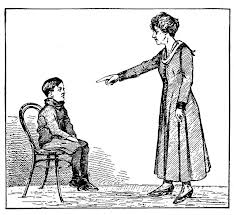“Help!”
10 common teacher worries and 10 ideas that will help.
The chaos you fear as a teacher is akin to a sense of feeling like being eaten alive. It is a feeling of absolute vulnerability, of being inside out, everyone noticing and of nowhere to run!
These concerns stem from parts of ourselves that were formed when we were first learning about the world and our place in it. This is why we feel them so acutely.
Thinking through some of them will help you keep it together and may even revolutionise the way you approach your practice as a teacher.
- I am boring, the lesson is boring, they’re gonna hate me…help!
You might be boring. It could be true. However, the important thing here is that you can make sure that your lesson is interesting. But most important of all is that you see the value in it. If you are bored by your lesson then why would anyone else be interested?
If you are going through the motions of a lesson or if you are somehow expecting the lesson to somehow teach itself then the likelihood is that you will be bored and so will they. On the other hand, if you believe it has value then this will be communicated to the students. So, the simple question here is; what is the value of the lesson for the students?
Does that mean every lesson has to be all bells and whistles?
Far from it. On the contrary. It’s more about what is being communicated to the students. If you spend your lesson communicating that you are worried about being boring then you will become boring.
Humans are a species who learned to read before there were words. We learned to read emotions and sensations, we read with our eyes and our ears, our sense of smell and our skin. And the reason we first learned to “read” – before we could speak, before we even knew where we ended and another person began was to ensure our own safety. And it is this desire, a desire for safety that still motivates, stimulates our ‘first’ and ‘lasting’ impression. Never more so than in a confined classroom, surrounded by teenagers.
Consequently, if, as the teacher you are dashing around a classroom, fretting about pupils being bored, not able to engage them in the eye because of your own worries, you are creating an atmosphere that is manic and which will feel unsafe. What you are doing, despite your best intentions, has become disconnected from the humans in front of you and what is being primarily processed by those pupils is the uneasiness you are creating with your manic attempts to be interesting.
Solution: Value what you are teaching. Be interested yourself! Know why it is important for students to learn this particular lesson and hold that in mind as you enter, as you set up the learning, as you teach the lesson. If pupils sense that you believe in what you are teaching, that you are interested in what you are doing, and sharing something that means something to you then you are on the road to engaging them.
Take being boring is a compliment
Words are used as weapons. And weapons like “you are boring” can be used, as weapons are, by pupils to defend themselves. Pupils can be ‘bored’ because the work is difficult for them. They will accuse you of being boring because they are struggling to confront their limitations. At least this shows you are challenging them! All pupils need to be planned for before a lesson but these pupils need particular attention.
Learning involves parts that are fascinating and engaging but it also involves parts that are hard work, where one is confronted by ones limitations and where one must ‘get through’ in order to have the reward that is not in the moment but up ahead. Rather than relieving these pupils of this, teachers sometimes do well to remind them that working hard, especially enduring times when things are difficult, is all part of the learning experience. Also, teaching students to delay gratification, to wait for the good part, is an invaluable lesson at any time in life, and a key skill we learned in our first few weeks and months of life.
- The students will know more than me – I don’t know enough – I’m a fraud and they’ll see through that….and chaos will ensue.
The question here is whether you expect to know ‘everything’ about what you are teaching. There might be a felt expectation that you have to be an ‘expert’. Every teacher needs to feel as though they know what we are talking and teaching about and it’s very important that students sense that you know your subject.
However, this is different from placing an expectation on yourself that you know more than everyone else about everything else, whether it’s your subject or not. Actually, it is not your role to know everything. It is possibly not even your role to teach the students in front of you what you know. The best teaching helps students draw on what they already know or understand and apply that to the new learning you are presenting them with. It is a step by step process. Teaching should be a two way street where you are confident about your subject but where you also accept that you do not know everything AND that is not your job to know everything.
I don’t want to confuse this with a lack of subject knowledge. If you are going to teach a group of students about punctuation, it is probably a good idea to learn about punctuation first. You need enough subject knowledge to be thorough, considering the context of the whole subject and given the limits of the pupils in front of you. It is your role to help them to think for themselves after all.
Suggestion: By taking up the role of “expert in all things” you not only cause yourself anxieties but you also rob pupils of any expertise they may feel they already have. They leave their ‘experience’ behind. Most importantly, if pupils are always faced with adults who pretend to be experts, they do not develop a sense that there are mistakes to be made, things that are not known and as such you stem rather than create ‘curiosity’. If you are always right then pupils will believe that they always have to be right in order to be ‘educated’.
- I’ll forget what I’m saying, it won’t make sense….
You might. In fact it would be weird if you didn’t occasionally lose track of thought. You have a lot to think about; the progression of the lesson, the way you will teach the lesson, the materials you will use, the students names…let alone dealing with any technology.
You also have to contend with both your and their feelings. You can be derailed at any point; maybe by catching the eye of a pupil who yawns or who is lolling on the desk, maybe another who is talking when you are, or whose facial expression doesn’t match the subject you are trying to get across and you ‘know’ they are not paying the slightest bit of attention. All of these things are enough to stop the best public speaker in their tracks and you have to do this up to six times day. So, no wonder there are times when you forget your next line or train of thought. Who wouldn’t?
Ebb and Flow
What is key here is to take the pressure off yourself. It’s unreasonable to think you’ll remember everything and be everything, be able to fill all the gaps, to have all of the pupils attentive all of the time. It’s right that lessons will ebb and flow to a certain extent. Pupils need time to process what you are teaching them. They have to create some distance in order to take in new learning. Plan that chance to process into the lesson by building in activities that mean you are not the only person in the room who is doing all the mental gymnastics.
There are lots of reasons why you might get an attack of the silences. It is often associated with overload, you are trying to remember too many things at once, you have so much to say that you don’t know what to say first.
It is the surprises that arise in the classroom that make the job permanently interesting but there is a big difference to being big enough and present enough to handle a question you genuinely haven’t considered and one where you just don’t know and try to bluff your way out of. The former conveys a message that teachers are also learners and always want to discover new things, the second says that teachers just can’t be trusted.
Suggestion: Keep your lesson plan simple. Know what it is you want to teach and simplify it, even if it’s a complex concept. Don’t try to teach something you don’t fully understand yourself. I know from experience that if you are unsure of certain areas of what you are trying to teach, you will strangely communicate what you don’t know as clearly as what you know.
- The lesson is too long – I don’t have enough material to fill the time…
Whether you have enough material to sustain the interest of the class is something that will come with experience. Classically I always think that I need between 4 and 7 separate parts to a lesson, with some parts being consolidation.
What’s much more important here is that you genuinely have something to teach them that is important for them to learn. The root of this anxiety may to do with the amount of learning that you make available to the class because they need to know it against the amount of material you present in order to fill the time.
Filling an hour and teaching an hour
There is a difference between filling an hour and teaching an hour. The former is about your survival and the latter is about everyone thriving and growing. Of course you need to plan for the allotted time in the lesson but more than this you have to consider how long it might take the pupils to learn what you have to share with them and how you might do that in an effective way. Again, this is about your own mindset. What are you doing in the room? Are you waiting for it to be over or are you in the moment doing what you can, engaging a class with something that is stimulating, interesting, valuable, important, involving your “self” in the lesson you have planned?
There is a another raft of things to consider here. Importantly, who are the pupils you have in front of you? Which of them might find the lesson too long or difficult to sustain? Who will need the learning broken down for them and who will need larger chunks to challenge them. All of this is important.
However, if you think of this purely from a psychodynamic point of view, you are not there to entertain them. You are not there to amuse them. You are not there to make life easy for them. You are there to help them grow. The test is in the intention. How real or authentic is your attempt to help them and how can you keep that in mind when some pupils express their anxiety about learning by attempting to derail you from your purpose. Everything else can be worked out with a watch and a piece of paper.
- Some students just aren’t interested…
The key question here is how interested are you in what you are teaching? How important is it? What do they need to know this for? It helps to look at your lessons in the context of the pupils school life. You will not of course always be teaching them essential survival skills or astonishing lessons that feel miraculous in their effect (and there are these lessons). It is about being able to think about what the whole picture is. If you are teaching a lesson because it is the next lesson on the scheme and if you are skulled-out bored, then you may see the pupils react to the material in the same way.
Proposition: Good teaching is like good parenting, it is about caring enough to be consistent, to plan with the pupils in mind and to maintain a safe environment where there is room for growth.
- I’m going to look like an idiot…
Sometimes looking like a fool can be the best favour you can do for the pupils and for yourself. I will often make myself the ‘fool’ who doesn’t know everything, the fool who is willing to not be ‘cool’ in the room. Anyone who has worked in a secondary school for any length of time, or who has teenage children will know that adolescents are incredibly self-conscious. It is part of their growing process and there is page on the blog that deals specifically with the developmental process of adolescents. However, for now, we all know that the last thing they want is to look foolish in front of their peers. They are looking for a person or a place to put that self-consciousness.
Often they will try to make fools of each other. In my experience this happens at all levels but is often more visible in lower ability classes where pupils have often been the subject of ridicule in other educational contexts. They are incredibly conscious of what they don’t know and where knowing anything can be felt as dangerous because they have little experience of their ‘knowing’ being right.
Don’t go out of your way to play the fool or to act the clown as a way of trying to impress. You are not one of their peers. I mean much more that you should perhaps show that you are not sure about the things that they know about; music, TV shows, internet, social networking. Just because they do not know what you know about doesn’t make them ignorant of everything. If you show that you don’t know what they know about then you are showing that knowledge can be acquired in many ways through many avenues and that you are offering knowledge that they don’t yet have, not that they are incapable of having.
Too often teachers use the knowledge they have as a treasure that they do not want to let go of. It is like a security blanket or like having a full wallet in a market place. The children in this scenario become like stall holders who, through their behaviour become worthy or unworthy of the currency you possess.
This attitude only adds to the “us and them” mentality in the classroom. The ‘food’ or money or knowledge that you have becomes something that has to be deserved. So often I have denied the pupils in front of me the knowledge that I have in order to punish them for making me feel bad. It’s like being in a playground where you wont share your sweets.
The pupils too can get into this mentality. A sure way of winding a teacher up is to refuse the knowledge he or she is offering. This is akin to the teacher having taken trouble to prepare a delicious meal and the pupils/children picking at it, playing it with it on their plate or just not touching it at all.
Proposition: Psychodynamics points to the feeding relationship between carer and baby as a model for the ideal classroom environment. It is an environment where both the carer and the “cared for” have an investment in the meal. The carer gets to see that what she offers is appreciated, taken in, digested; that it’s satisfying and sustaining. The carer gets to be the life giver. What better feeling could there be than seeing what one has produced being devoured hungrily. For their part, the “cared for” get to feel held and safe and that the inner chaotic world can have order and be transformed and made into an experience that feels blissful and satisfying.
The exchange comes from the deepest part of ourselves, from a time before words and is universal in its appeal.
- I won’t be able to control the group if things go wrong….
For whose sake are you controlling the group? And what is your expectation about control? Do you think you should be able to control every single moment and every single thought and exchange that goes on in the room?
Read the page on control and containment which deals with how to think about classroom management not as a dyadic – “me versus them” experience where you are in control of them but as a triangulated place where you with them can discover a third place where you can achieve progress together. You do not want someone to control you so why would you think anyone would want you to control them? It is not your job to control the pupils, it is your job to help them and you feel safe enough so that learning can take place.
- They won’t listen to me…
What are you saying? Is it worth listening to? What are you saying with your body language and your non verbal communication? What are you saying with your lesson objective? What are you saying by turning up five minutes late for the class? What are you saying by picking on the same pupils to answer questions or the same pupils to send out or the same pupils to let off for the same misdemeanors?
I am conscious that I am putting responsibility at your door. But these are things that you have some control over and that you can work on and change. Teachers under siege have the tendency to believe that the responsibility for “bad” behaviour lies with the pupils and the school alone. Their problems – which are real and difficult to cope with – become the fault of others. They become “If only…” teachers. If only the head of year would do something…If only the head would exclude more pupils…if only…
Of course these ‘If only’s” are real. A school should have effective systems for dealing with disruptive behaviour. There should be a clear rules and a clear line of sanctions and rewards that both teachers and pupils are aware of and which are followed through.
There is a drive for connection in all of us. So, is there something that you can do to show the pupils that you are serious about making connections with them? Are you really there to teach them something – something worthwhile? Are you consistent and clued up enough to know that the poor behaviour they show you is designed to protect themselves from mental pain and not about you.
It’s hard to remember this and it takes dedication and focus, not just on the students but on yourself and your own feelings.
- X is here…they don’t like me. If things go wrong they might pick on me…
Bion, a psychoanalyst who studied and wrote extensively about group dynamics, said that in any group there are certain members that carry the anxiety for the whole group.
In other words, there will be someone in the group who carries that part of the individuals in the group who is not interested in the group task or process. They might look out of the window or they might doodle on their notepads if they are grown ups or they might talk or interrupt or call out if they are adolescents.
Exploration: This member of the group is useful for the group as a whole because they provide an outlet for a feeling that exists in each member. That part of them that it resistant to the group process, that does not want to lose their individuality to the group. In a classroom, these children can often be those who have had or who still have challenging lives outside of school. These children, particularly if they are from homes where communication is erratic or where they have to ‘feel’ when it is safe or not to speak or even exist for fear of parental retribution, develop other ways of communicating.
They will gauge how safe the teacher is, they will feel the room and decide if it is a place where they can let down some of their defenses. They will often test the teacher to gauge his or her limits, to see if they are able to tolerate the inner chaos that they are experience in a group.
Because these children are often very sensitive in themselves they show up as brash and bullying. The last thing they want is for their vulnerability to be seen by you or anyone in the room so they attack you so that you feel bullied and vulnerable. They project those feelings into you.
It is part of your task to help them and the others in the room deal with the anxiety they and you feel. If you let the anxiety get ‘into’ you, you will be drawn into reacting to their behaviour on face value. That is what they seem to want. But it is not what they really want.
Let’s be clear; nobody actively seeks chaos for its own sake. All communication is a fundamental drive for love and understanding.













